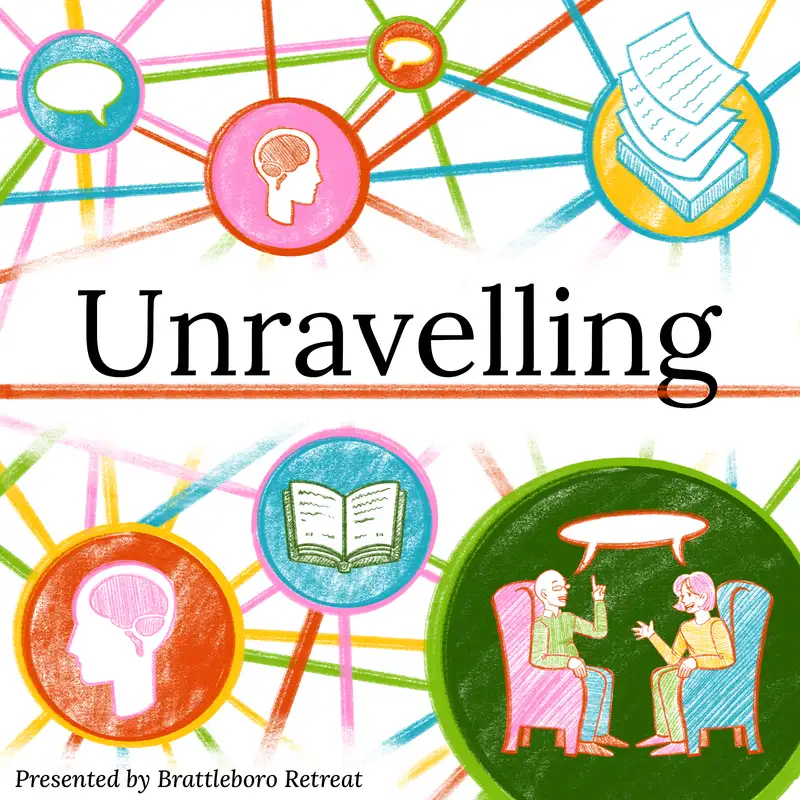The psychology of the Black experience
In this episode of Unravelling, Kurt White sits down with Professor Nnamdi Pole, Harold and Elsa Israel Professor of Psychology and Chair of the Psychology Department at Smith College, to discuss his course, The Psychology of the Black Experience. Professor Pole shares insights from his long-running course, delving into the role of psychology in understanding Black identity, collective experiences, and the impact of systemic forces like racism.
The conversation unpacks the origins of Black psychology as a response to scientific racism, which historically justified stereotypes of Black inferiority through flawed studies on IQ, skull sizes, and other biased metrics. Professor Pole traces the emergence of the Association of Black Psychologists and discusses the two major strands of Black psychology—one that counters racism by centering Black experiences, and another that explores pre-colonial African psychological traditions, emphasizing collectivism, spirituality, and alternative concepts of selfhood.
The discussion also tackles the evolving definition of race, the spectrum of racism from unconscious biases to systemic discrimination, and the challenges of teaching about race in a classroom with both Black and non-Black students. Professor Pole critiques colorblind ideologies, advocating instead for a pluralistic society where diverse identities are recognized and valued.
Many special thanks to Northfire Recording Studio in Amherst, MA, which provided space and equipment for our recording of this episode!
Links:
Professor Pole is available to do public speaking and/or diversity training in person or remotely for schools, clinical settings, or corporate settings. You can reach him at npole@smith.edu.
He suggests the following textbook and supplementary readings if you'd like to learn more:
Textbook: Belgrave, F.Z. & Allison, K.W. (2019). African American Psychology: From Africa to America (4th Edition). Thousand Oaks, CA: Sage.
Kahn, K. B., & McMahon, J. M. (2015). Shooting deaths of unarmed racial minorities: Understanding the role of racial stereotypes on decisions to shoot. Translational Issues in Psychological Science, 1(4), 310–320.
Karras J. E., Niwa E. Y., Adesina F., Ruck M. D. (2021) Confronting whiteness: Conceptual, contextual, and methodological considerations for advancing ethnic-racial socialization research to illuminate white identity development. Journal of Social Issues. 77: 1305–1326.
Lewis, J. A. (2023). Contributions of Black psychology scholars to models of racism and health: Applying intersectionality to center Black women. American Psychologist, 78(4), 576–588.
Lundberg, Kristjen B.; Payne, B. Keith; Pasek, Josh; Krosnick, Jon A. (2017). "Racial Attitudes Predicted Changes in Ostensibly Race‐Neutral Political Attitudes Under the Obama Administration." Political Psychology 38(2): 313-330.
Steele, C. M. (1997). A threat in the air: How stereotypes shape intellectual identity and performance. American Psychologist, 52(6), 613–629.
Vandiver, B. J. (2024). Fifty Years (1974–2024) of the Journal of Black Psychology: A Brief History and Reflection of Its Significance. Journal of Black Psychology, 50(1), 3-8.
Williams, M. T. (2021). Racial microaggressions: Critical questions, state of the science, and new directions. Perspectives on Psychological Science, 16(5), 880–885.
Selected videos:
The Race Gap: How U.S. systemic racism plays out in Black lives
Positive Racial Identity in Early Education
Seeing White
The Fake Link Between Race and Intelligence
Black Youth Suicide
The conversation unpacks the origins of Black psychology as a response to scientific racism, which historically justified stereotypes of Black inferiority through flawed studies on IQ, skull sizes, and other biased metrics. Professor Pole traces the emergence of the Association of Black Psychologists and discusses the two major strands of Black psychology—one that counters racism by centering Black experiences, and another that explores pre-colonial African psychological traditions, emphasizing collectivism, spirituality, and alternative concepts of selfhood.
The discussion also tackles the evolving definition of race, the spectrum of racism from unconscious biases to systemic discrimination, and the challenges of teaching about race in a classroom with both Black and non-Black students. Professor Pole critiques colorblind ideologies, advocating instead for a pluralistic society where diverse identities are recognized and valued.
Many special thanks to Northfire Recording Studio in Amherst, MA, which provided space and equipment for our recording of this episode!
Links:
Professor Pole is available to do public speaking and/or diversity training in person or remotely for schools, clinical settings, or corporate settings. You can reach him at npole@smith.edu.
He suggests the following textbook and supplementary readings if you'd like to learn more:
Textbook: Belgrave, F.Z. & Allison, K.W. (2019). African American Psychology: From Africa to America (4th Edition). Thousand Oaks, CA: Sage.
Kahn, K. B., & McMahon, J. M. (2015). Shooting deaths of unarmed racial minorities: Understanding the role of racial stereotypes on decisions to shoot. Translational Issues in Psychological Science, 1(4), 310–320.
Karras J. E., Niwa E. Y., Adesina F., Ruck M. D. (2021) Confronting whiteness: Conceptual, contextual, and methodological considerations for advancing ethnic-racial socialization research to illuminate white identity development. Journal of Social Issues. 77: 1305–1326.
Lewis, J. A. (2023). Contributions of Black psychology scholars to models of racism and health: Applying intersectionality to center Black women. American Psychologist, 78(4), 576–588.
Lundberg, Kristjen B.; Payne, B. Keith; Pasek, Josh; Krosnick, Jon A. (2017). "Racial Attitudes Predicted Changes in Ostensibly Race‐Neutral Political Attitudes Under the Obama Administration." Political Psychology 38(2): 313-330.
Steele, C. M. (1997). A threat in the air: How stereotypes shape intellectual identity and performance. American Psychologist, 52(6), 613–629.
Vandiver, B. J. (2024). Fifty Years (1974–2024) of the Journal of Black Psychology: A Brief History and Reflection of Its Significance. Journal of Black Psychology, 50(1), 3-8.
Williams, M. T. (2021). Racial microaggressions: Critical questions, state of the science, and new directions. Perspectives on Psychological Science, 16(5), 880–885.
Selected videos:
The Race Gap: How U.S. systemic racism plays out in Black lives
Positive Racial Identity in Early Education
Seeing White
The Fake Link Between Race and Intelligence
Black Youth Suicide
